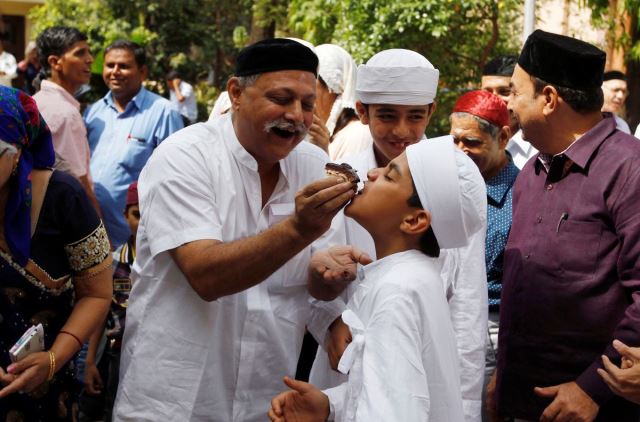
Navroz 2022: How To Celebrate Parsi New Year
On the occasion of Navroz, people from the Parsi community celebrates Parsi New Year at Zorastrian Fire Temple in Dadar Parsi Colony.
Navroz, which is the Parsi New Year, is being celebrated this year on August 16. The day is dedicated to the beginning of spring and to promoting peace, solidarity, and friendship among people and different communities.
A Parsi couple shared how they are going to celebrate the New Year. They said we Will celebrate this year with prayers as prayers are only important for us. Due to Covid-19, now we are trying to make it up for the last 2 years.
Another Parsi woman stated we will have a small celebration with family.
Navroz celebration is believed to date back to the time when Prophet Zarathustra founded Zoroastrianism, one of the earliest known monotheistic religions in the world, in Persia (now Iran). It was one of the most important religions in the ancient world until the emergence of Islam in the seventh century.
During the Islamic invasion of Persia, several Persians fled to India and Pakistan. Since then, their festivals have become a part of Indian festivities and are celebrated by people from diverse cultures.
Navroz marks the first day of Farvardin, the first month in the Zoroastrian calendar, also known as the Shahenshahi calendar.
For followers of Zoroastrian philosophy, this day represents the time when everything in the universe is completely renewed. Jamshed, a monarch of the ancient Sasanian Empire, is credited with introducing the Parsi calendar. Hence, this holiday is also called Jamshed-i-Nouroz.
Though across the world, Navroz is celebrated at the time of the vernal equinox around March 21 however, Parsis in India follow the Shahenshahi calendar which does not recognise leap years. This is why the Parsi New Year in India is celebrated almost 200 days after it is celebrated across the world.
On this occasion, Parsi families across India, especially in the states of Maharashtra and Gujarat as they have a sizeable Parsi population, visit the holy temples to offer prayers.
They also prepare traditional Parsi dishes like Farcha, Berry Pulao, and Jardaloo Chicken, among several other things. Parsis also believe it to be a day of remittance of sins and a time for repentance. (ANI)



